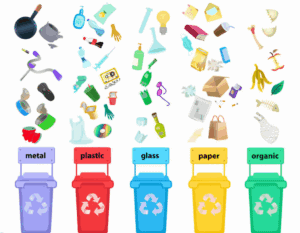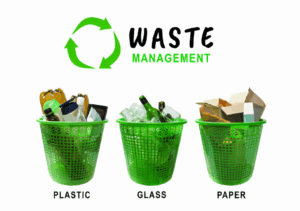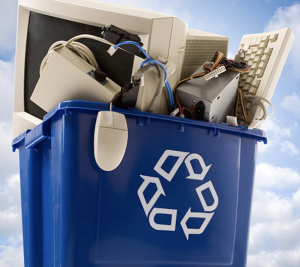Bangalore, known as the Silicon Valley of India, has long been a hub for technology and innovation. However, with its rapid urbanization and population growth, the city faces significant challenges in managing its waste. Extended Producer Responsibility (EPR) has emerged as a key strategy in Bangalore’s waste management efforts, aiming to shift the burden of waste management from local governments to producers and manufacturers. In this brief, we explore the concept of EPR and its implementation in Bangalore’s waste management landscape.
Understanding Extended Producer Responsibility
Extended Producer Responsibility is a principle that assigns responsibility for the environmental impact of a product throughout its lifecycle to the manufacturer, rather than the end consumer or local government. Under the EPR framework, producers are held accountable for the collection, recycling, and disposal of their products once they reach the end of their useful life. This approach incentivizes producers to design products that are easier to recycle and promotes the adoption of sustainable production practices with E-waste recycling and pickup service Bangalore.
The Need for EPR in Bangalore
Bangalore generates a significant amount of waste, much of which ends up in landfills or informal dumping sites, causing environmental pollution and public health hazards. The city’s waste management infrastructure has struggled to keep pace with the increasing volume of waste, leading to overflowing landfills and inadequate waste collection and disposal services.
The implementation of EPR in Bangalore is seen as a critical step towards addressing these challenges. By holding producers accountable for the waste generated by their products, EPR encourages the adoption of sustainable packaging and product design, reduces the burden on local governments for Ewaste management Bangalore, and promotes the development of a circular economy.
Key Components of EPR Implementation in Bangalore
- Legislative Framework: The Karnataka State Pollution Control Board (KSPCB) has played a central role in implementing EPR in Bangalore. The KSPCB has issued guidelines and regulations mandating the implementation of EPR by various industries, including electronics, plastics, and packaging.
- Product Stewardship Programs: Under EPR, producers are required to establish product stewardship programs to manage the end-of-life disposal of their products. These programs may include take-back schemes, recycling initiatives, and public awareness campaigns to encourage responsible consumer behavior by recycling service Bangalore.
- Industry Collaboration: The success of EPR relies on collaboration between producers, government agencies, and other stakeholders. Industry associations and trade bodies play a crucial role in facilitating dialogue between producers and regulators and ensuring compliance with EPR regulations.
- Consumer Education and Awareness: EPR implementation in Bangalore includes efforts to educate consumers about the importance of responsible waste disposal and recycling. Public awareness campaigns highlight the role of consumers in supporting EPR initiatives and encourage them to make informed choices about the products they purchase.
- Monitoring and Enforcement: The KSPCB conducts regular inspections and audits to monitor compliance with EPR regulations by IT asset disposal in Bangalore. Non-compliant producers may face penalties or sanctions, incentivizing them to adhere to their EPR obligations.
Success Stories and Challenges
The implementation of EPR in Bangalore has led to several success stories, demonstrating the potential of this approach in improving waste management practices. For example, in the electronics sector, major manufacturers have established take-back programs for end-of-life products, enabling consumers to return old electronic devices for recycling or safe disposal.
Similarly, in the packaging industry, initiatives such as deposit-refund systems and eco-friendly packaging alternatives have gained traction, reducing the environmental impact of packaging waste. These initiatives have not only diverted waste from landfills but have also created new opportunities for recycling and resource recovery.
However, despite these successes, several challenges remain in the implementation of EPR in Data/Hard disk destruction service. One major challenge is the lack of awareness and understanding of EPR principles among producers and consumers. Many small and medium-sized enterprises (SMEs) struggle to comply with EPR regulations due to limited resources and technical expertise.
Additionally, the fragmented nature of Bangalore’s waste management ecosystem poses challenges for effective coordination and collaboration between stakeholders. Ensuring consistent enforcement of EPR regulations across different industries and sectors requires sustained efforts from regulatory agencies and industry associations.
Looking Ahead
As Bangalore continues to grow and develop, the effective implementation of EPR will be essential in addressing the city’s waste management challenges. By incentivizing producers to take responsibility for the environmental impact of their products, EPR can contribute to a more sustainable and circular economy.
Moving forward, it will be important to build awareness and capacity among producers, consumers, and regulators to ensure the successful implementation of EPR. Strengthening partnerships between government agencies, industry associations, and civil society organizations will also be crucial in overcoming barriers and driving progress towards a more sustainable future for Extended Producer Responsibility Bangalore.







